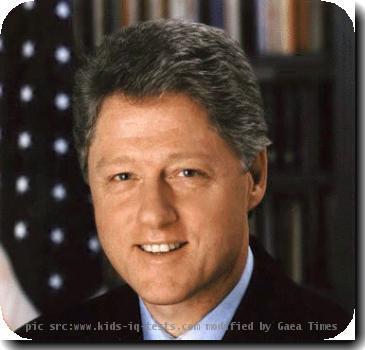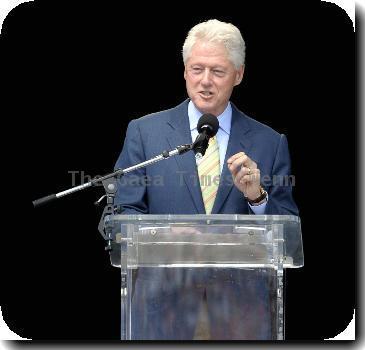Rwanda puts outspoken Hutu presidential candidate on trial to avoid backslide to genocide
By Jason Straziuso, APFriday, May 21, 2010
Rwanda muzzles candidate, fearing genocide return
KIGALI, Rwanda — When presidential hopeful Victoire Ingabire, a Hutu, returned to Rwanda after a long absence she immediately visited a memorial to Tutsis killed in the 1994 genocide and asked why Hutus who also died weren’t remembered. She then told Hutu prisoners she would get them out of chains.
For these actions, the 41-year-old Ingabire was arrested, charged with genocide ideology and could be sentenced to more than two decades in prison if convicted.
It’s been 16 years since 800,000 Rwandans, the vast majority of them Tutsis, were slaughtered by Hutus. With the nation still grappling with ethnic divisions almost a generation later, Ingabire’s case has become a test of where Rwanda stands in its effort to move past the genocide — and how much freedom the government of President Paul Kagame, a Tutsi, will allow its people.
The government has been lauded by the international community for its progress in women’s rights and economic growth, but analysts say it harshly cracks down on dissent, something Kigali citizens confirm in nervous street interviews.
Ingabire says she’s merely trying to exercise her rights and that the government’s response shows it is “far from democracy.” For its part, the government, wary of anything that could inflame ethnic tensions, accuses her of risking another slide toward violence with her actions.
Kigali, Rwanda’s hilly capital, is prosperous and beautiful. More than half the members of the lower house of parliament are women, the highest proportion in the world. Former U.S. President Bill Clinton’s foundation last year gave Kagame an award in recognition of his work to develop rural health and education systems and strengthen infrastructure.
Kagame is running for re-election in the Aug. 9 elections and is expected to win another seven-year term.
But human rights groups say that under the serene-looking surface the government has an ironclad hold on power and quashes opposing views. The U.S. State Department said in a March report that citizens’ rights to change their government are “effectively restricted” and cited limits on freedoms of speech, press and judicial independence.
“Politically there’s no space for the opposition or any other view than that of the government,” said Daniela Kroslak, an analyst with the International Crisis Group in Nairobi, Kenya.
Ingabire says she returned to Rwanda in January after 16 years because the country needs an open discussion to promote reconciliation. In an interview, she complained that she is being muzzled.
“That’s the problem I have with this government. If you talk about ethnicity, they say you are a divisionist,” Ingabire said. “I think the better solution is you talk about it and find a solution.”
The government’s chief prosecutor, Martin Ngoga, said this is not simply a free-speech issue because Ingabire could incite Rwanda “to once more explode as it did only 16 years ago.”
Ingabire has contacts with the FDLR, a group of Hutu fighters operating in the Democratic Republic of Congo. The Rwandan government has labeled the FDLR as a terrorist group. Ingabire says her party doesn’t agree with the FDLR’s politics but Ngoga said she is seeking to destabilize Rwanda with her FDLR contacts.
“We have done a lot in terms of trying to overcome the legacy of the genocide and to get people to pursue the future,” Ngoga said. “But we have not gotten to the point where our community is educated enough to the extent where it cannot be manipulated again.” He warned that the government won’t tolerate people giving “speeches that incite ethnic divisions.”
In the wake of the 1994 killings, the government set out to de-emphasis ethnicity. Many in the country now identify simply as a Rwandan, not a Hutu or Tutsi.
“When I was born, when I was growing up, I was Hutu. But now when you see someone you can’t ask, ‘Is he Tutsi?’ There is no difference,” said Gabriel Semasaka, a member of parliament.
Despite Rwanda’s advances, many Rwandans say they don’t feel safe. A series of grenade attacks in the capital this year injured dozens of people and killed two, with the most recent attack occurring on May 15. Police haven’t said whether the attacks are connected to the upcoming elections.
Some Rwandans won’t even give their names to reporters, fearing government retaliation. One 24-year-old Kigali resident told AP that “tomorrow I’ll find myself in prison” if he gave his name. He and a 28-year-old friend said they don’t trust the government because of its rigid hold on power.
Many Hutus still live outside the country. Refugees in neighboring Uganda are afraid to come back and this month asked the Ugandan government for asylum. Yowana Ahetegikimana, 42, said from the Nakivale refugee camp in western Uganda that he was arrested in Rwanda two weeks ago and detained in a container for a month for supporting an opposition party. “I was rarely given food and beaten often,” he said.
Amnesty International has urged the Rwandan government to ensure Ingabire receives a fair trial. She is free on bail but her passport was seized and she can’t leave Kigali pending her trial at an undetermined date.
Associated Press reporter Godfrey Olukya in Kampala, Uganda, contributed to this report.

